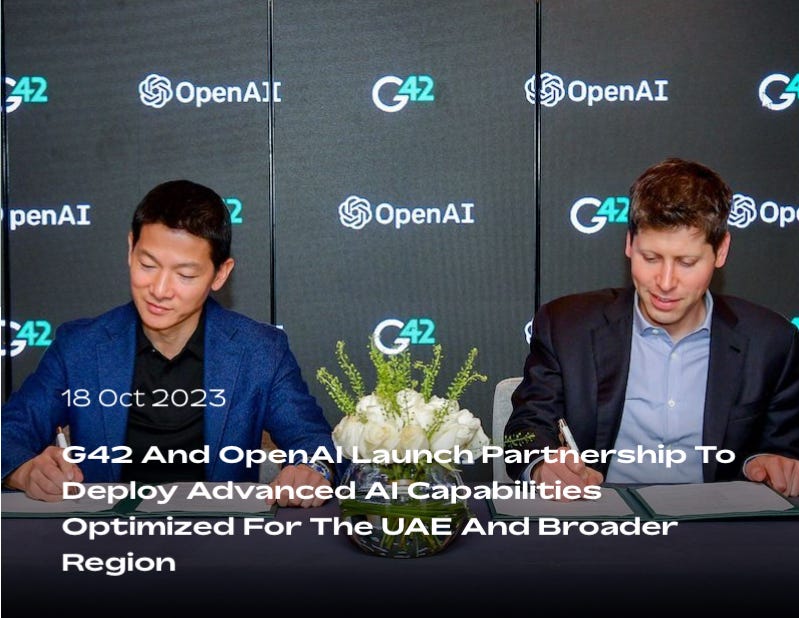Critical national security questions should not be decided unilaterally by unelected tech leaders
Increasingly, they are.
“Key parts of people’s daily lives, and even some essential functions of the state, increasingly exist in the digital world, and the future is being shaped by tech companies and decentralized blockchain projects that are not good at (or interested in) governance. States will fail to halt this trend.” - Prediction from Ian Bremmer and Cliff Kupchan, January 2022
Ian Bremmer has increasingly warned of a “technopolar” world in which Big Tech companies, rather than nations, run the world.
I submit that we are already part way there. Three recent observations:
Whether or not to open-source increasingly powerful AI is one of the thorniest questions around. There is immense conflict between people who favor it (like Yann LeCun, Chief AI Officer at Meta) and people like Geoffrey Hinton who oppose it. Reasonable people could disagree. Open-source software has been fabulous for the internet, but open-source AI might, for example, be used to design bioweapons. With so much at stake, all of this demands careful public discussion. What we should not have is a couple of tech lords sitting around deciding for us. But that’s exactly what’s happening: Messrs. LeCun and Zuckerberg seem to have talked it out, and decided what’s best (in their not-so-humble opinion) for all of us. (Or at least for them: open-source gives them a niche and helps get them back in the game after being left out for a while.) In a post on X that made my stomach curl, LeCun wrote, “The groundswell of interest for Llama-1 is what convinced the Meta leadership that the benefits of an open release of Llama-2 would overwhelmingly outweigh the risks and transform the AI landscape for the better” [emphasis added]. It shouldn’t be entirely up to them to decide. But at present, it is.
Another key open issue is how much we should share our technology with other nations, even if it is not open source. Interestingly, right before the OpenAI drama, Sam Altman announced a significant partnership with UAE-based company G42, as reported today in the New York Times. According to the report, that deal is raising eyebrows in Washington, “in classified American intelligence channels, there have been … concerning reports about the company. The CIA and other American spy agencies have issued warnings about G42’s work with large Chinese companies that US officials consider security threats, including Huawei, the telecommunications giant that is under US sanctions. US officials fear G42 could be a conduit by which advanced American technology is siphoned to Chinese companies or the government”. So far, Big Tech rather than the US government is calling the shots.
Elon Musk’s decisions last year arguably played a critical role in prolonging the Ukraine-Russian war. Although the details are murky, Musk seems to have decided not to permit the Ukrainian government to use Starlink for communications around Crimea, at a moment in which Ukraine could have delivered a huge blow. (Snopes has a good discussion of what exactly transpired.)
All that happened in just the last year or so. And I doubt it is a complete list.
I, for one, did not elect our tech overlords.
Gary Marcus thinks it is essential that the citizens of the world pay more attention to which way the wind is blowing.


I really appreciate where you are taking the conversation these days, Gary. The OpenAI meltdown should have us all reevaluating what we thought was true about AI safety, legislation, and policy. Self-regulation is a joke. Period. But how to do regulation well? Thanks for walking us through the initial steps.
Johnny's in the basement mixin' up the medicine, Gary's on the pavement, thinkin' 'bout the government...